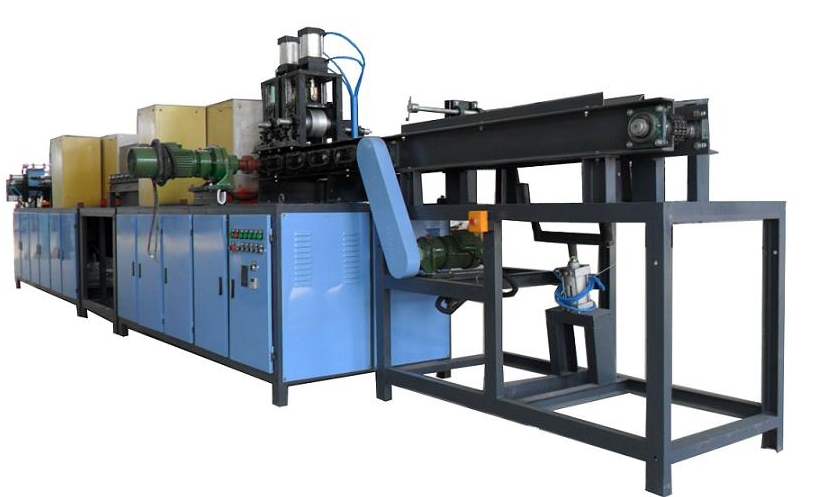- 13
- Apr
Online heat treatment-quenching and tempering treatment | steel pipe quenching and tempering | round steel quenching and tempering
Online heat treatment-quenching and tempering treatment | steel pipe quenching and tempering | round steel quenching and tempering
Quenching na iwe iwe is a comprehensive heat treatment process of quenching and high temperature tempering. Most of the quenched and tempered parts work under relatively large dynamic load. They are subjected to tension, compression, bending, torsion or shearing. Some surfaces also have friction, requiring a certain degree of wear resistance and so on. In short, the parts work under various compound stresses. Such parts are mainly structural parts of various machines and mechanisms, such as shafts, connecting rods, bolts, gears, etc., which are commonly used in manufacturing industries such as machine tools, automobiles, and tractors. Especially for large parts in heavy machine manufacturing, quenching and tempering treatment is used more. Therefore, the quenching and tempering treatment occupies a very important position in the heat treatment.
According to the working conditions of the parts and in order to ensure the performance requirements of the parts, such as determining the selection of quenching and tempering treatment, the first thing to consider is the question of steel used for quenching and tempering parts. Generally, the following points must be paid attention to:
1. In terms of process performance, in addition to good forgeability and machinability, the most important thing is hardenability. Because the performance of steel is determined by the structure of steel, and the structure of steel is directly related to its hardenability. Practice has proved that steel has the best comprehensive mechanical properties after being fully hardened and properly tempered. When the part is completely hardened, no matter carbon steel or alloy steel, it should be tempered to the same hardness, and its tensile strength, yield strength and fatigue strength are basically the same.
2. In terms of mechanical properties, after the steel is quenched and tempered, the performance should be able to meet the performance indicators required by the parts. According to the mechanical performance requirements of most quenched and tempered parts, its performance indicators are within the following range. Σb : 600-1200MPa. Σs : 320—800 MPa. . Σs/σb : 50-60% σ-1 : 380-620MPa. Δ : 10-20% ψ : 40-50%
Brinell hardness 170—320HB

